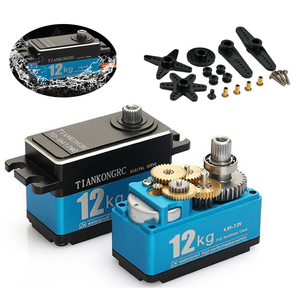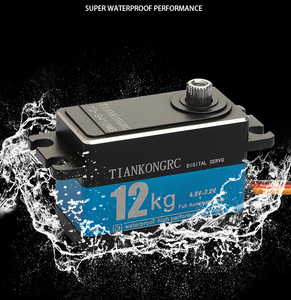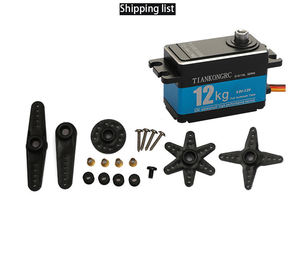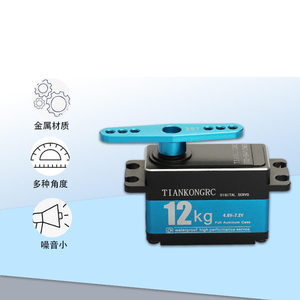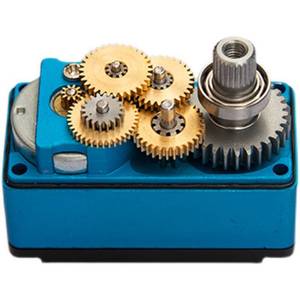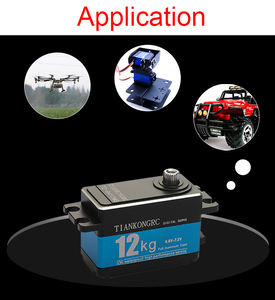Types Of 180-Volt DC Motor Controllers
180-volt DC motor controllers come in various types, and each differs from the other in function, operating feature, and application. All these factors must be considered to enable effective and easy selection for business, especially depending on the customer's specific needs.
- All-Speed Controllers: These types of controllers have speed variations where the speed can either be high or low, with the application mainly in electric vehicles. They control the motor to enable the high-torque operations at the low-speed intervals, with the result being more efficient working. Moreover, there is less heat generation in the process.
- Directional Controllers: This function is in the part of the applications where they need to drive and, at the same time, reverse the operation. They are applicable in conveyor belts, which enable the load shifting both ways. This feature makes them critical when operating systems require frequent direction changes.
- PWM Speed Regulator: These controllers are known to provide speed control through pulse width modulation, guidance, and precision. The use of PWM reduces power and enables the controller's use in applications where speed control brings about energy conservation benefits.
- Programmable Controllers: The emergence of microcontrollers has revolutionized the whole process with the introduction of programmable controllers. Their applications vary considerably based on their parameters, which need adjustments to fit different motor characteristics. They thus provide flexibility in an environment where variations need quick responses.
Commercial Uses of 180-Volt DC Motor Controllers
The commercial application of DC motor controllers is well understood at this higher voltage, considering the diverse industries the controller plays a crucial role in motor operations.
- Electric Vehicles: As this is an emerging field, 180-volt DC motor controllers are thus critical. They control the vehicle's motor to achieve better torque and speed while giving the driver good control. In doing this, they improve efficiency and reduce heat, hence the rise in the range and performance of the vehicles.
- Industrial Machinery: The operation of the machinery used in the industries involves these controllers since they are applied to motors that do high torque tasks. Precision control translates into the productivity and effectiveness the controller brings to its application.
- Renewable Energy Systems: In renewable energy generation, especially wind and water, the controllers help regulate the motor to maximize energy capture. Moreover, this regulation leads to system efficiency and the achievement of better energy output.
- Robotics: The functioning of robotic systems is attributed to 180 DC controllers. For instance, movement and load handling by actuators depend on it. Controllers are vital in upholding the accuracy and responsiveness that is very important for complex operations.
- Conveyor Systems: These are common in manufacturing and material handling. The controllers help the motors drive the belts at the required speed and change the direction whenever necessitated by the system.
Factors That Impact The 180-Volt DC Motor Controller's Pricing
Understanding what influences electrical motor controller prices empowers buyers to make informed decisions that are cost-effective.
- Technological Features: These controllers' advanced technology and features greatly impact their cost. Controllers with regenerative braking, advanced PWM, or other energy-saving features usually have a higher price due to their commercial value in enhancing motor operations.
- Load Capacity: Generally, controllers that have higher load capacities are more expensive since they are suitable in environments requiring operations of high-power motors. Industrial clients might need these high-end controllers, which may offset the cost due to their capacity.
- Materials: The manufacturing of a product determines its price as it is built from different materials. If the controller is made from premium-quality materials, which are more durable and enhance strength and corrosion resistance, then there will be a higher price in the market.
- Application Specific Controllers: If a controller is an application-specific version, such as in robotics or aerospace, the price might increase due to the demand for such niche products. This results from their functionality and reliability in the critical engine control applications.
- Market Demand: Fluctuation in demand will also influence the price. The controllers' prices will probably go high if, at a certain time, there is a higher demand due for, say, electric vehicles/industries. Conversely, this would settle if the demand were low.
- Brand Reputation: Sometimes, established brands with OEMs behind it garner a higher price due to reliability and customer support. If the customers value the reputational factor more, one will not mind spending extra, especially if the controllers manufactured by the brand will be used in highly sensitive applications.
How To Choose a 180-Volt DC Motor Controller
- Compatibility: The voltage and current ratings of the motor and its controller should be in equilibrium. At this point, the controller should deal with the motor's voltage and current without overstressing or underutilizing it.
- Application Requirements: What the controller has to achieve is determined by the nature of the application, whether in an EV, robotic arm, or industrial motor. Factors like precision, load-bearing capacity, speed control range, and durability enhance performance in that specific area.
- Regenerative Braking: If one goes for an electric vehicle or any battery-powered application, regenerative braking becomes a key parameter. A controller with regenerative braking will capture this kinetic energy and convert it to potential energy, thus extending battery life.
- Protection Features: Over-temperature, over-voltage, and short-circuit protection features are needed to be there in a good controller. They increase the lifespan of the controller and the motor by reducing risks while, at the same time, ensuring minimal downtime in the operations.
- Easy Installation and Configuration: Related components are to be fixed, especially in industries where machines are running at all times. A controller that is easily installed, configured, and by non-specialist mechanics saves a lot of time and contribution towards maintaining a sound business operation.
- Cost vs. Benefit: The research conducted by the cost of the controller should not just be any normal research. Consider how much the controllers impact operational efficiency and reduce maintenance and downtime. Furthermore, an initial investment in a high-quality controller will likely pay off in the long run, especially in high-demand applications.
Q & A
Q. What role does a PWM speed regulator play in a DC motor?
A PWM speed regulator controls the DC motor speed by pulsing the power supplied to it. This efficient technique minimizes energy wastage, making it ideal for applications requiring precise speed control.
Q. What is the difference between a DC motor controller and a converter?
A DC motor controller manages motor operations like speed and direction, while a converter changes electrical power forms, adapting varying DC source voltages for diverse application requirements.
Q. Is a 180-volt DC motor controller suitable for high-load applications?
A 180-volt DC motor controller is ideal for high-load applications, like electric vehicles and industrial machinery. The voltage level provides robust power and precise control for these demanding tasks.
Q. What function does a DC Motor Speed Controller serve in an electric bicycle?
The DC Motor Speed controller in electric bicycles smoothly manages motor power to ensure varying speed, helping the rider with controlled and efficient performance depending on the riding conditions.
Q. Are 180-volt DC motor controllers compatible with renewable energy systems?
Yes, 180-volt DC motor controllers are widely used in renewable energy systems like wind and hydro power. They help optimize energy capture, increasing the overall efficiency of these sustainable power generation systems.













































































































































